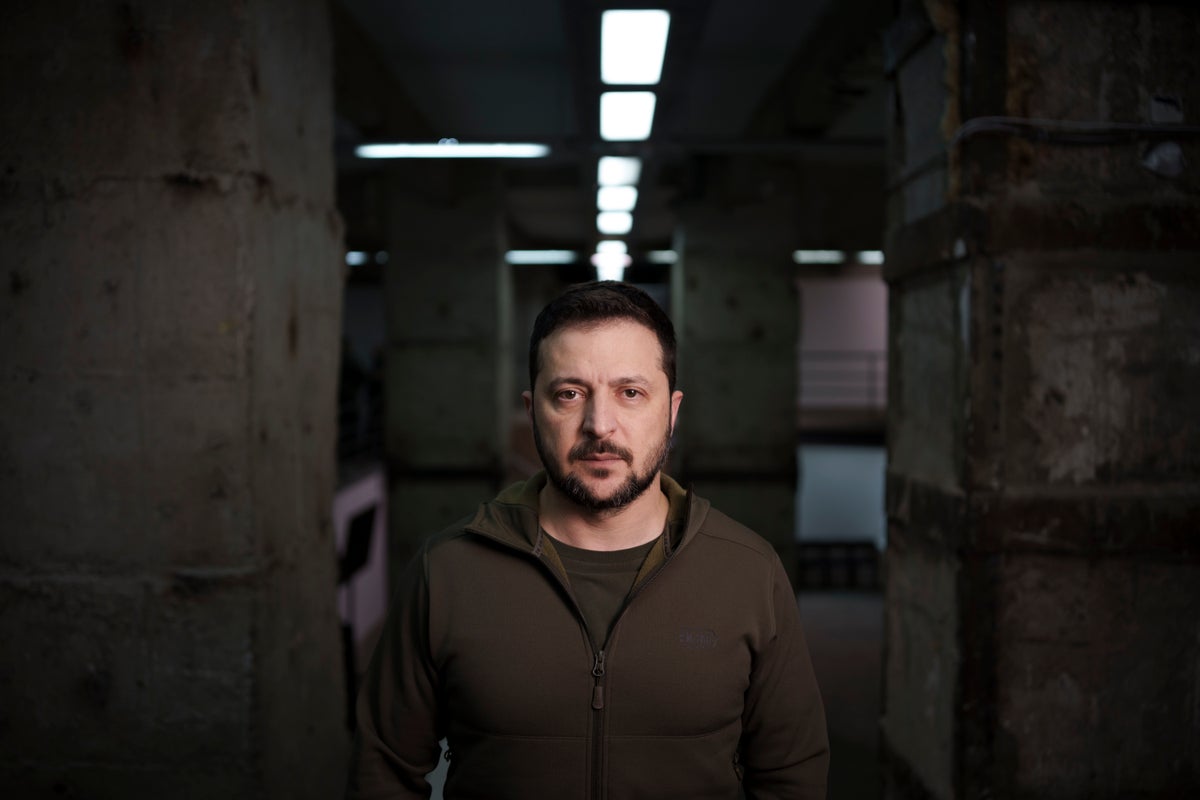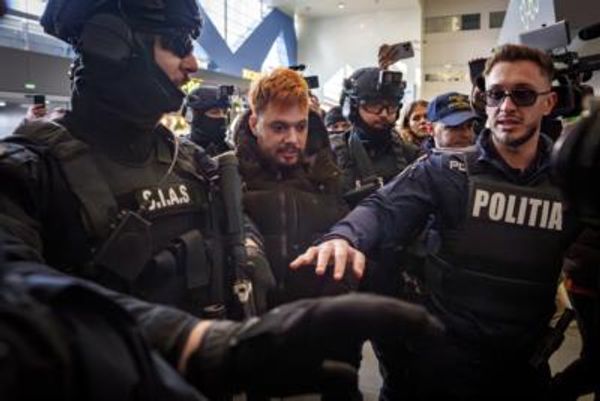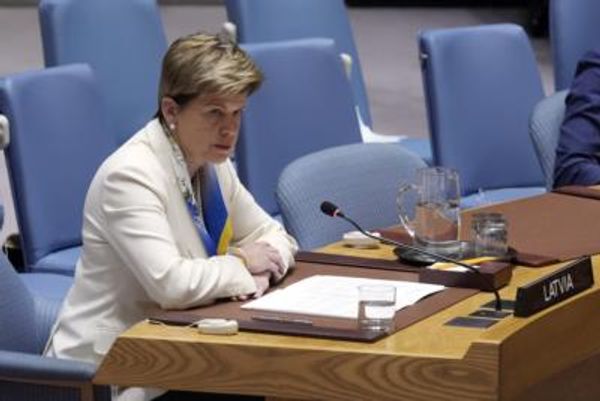
The Associated Press was invited to tour an embattled town in northeastern Ukraine with President Volodymyr Zelenskyy as part of an exclusive interview with him. Some takeaways from the session:
THE LOOMING WINTER CAMPAIGN
Zelenskyy said the onset of winter marks a new phase of the 21-month-old war with Russia that will impact not only front-line battlefields but also civilians in cities and towns, as well as the export of grain.
He anticipates a resumption of an intense Russian air campaign. Such attacks last year struck key civilian infrastructure, affecting power, heat and water supplies. Russia also targeted grain silos and ports, hampering export capabilities.
Although Ukraine has robust air defenses, thanks to Western allies, and has managed to thwart most drone and missile attacks on major cities, Russia appears to be intent on overwhelming these capabilities. Zelenskyy said protecting civilian areas in addition to keeping up defenses on the long front line makes the winter campaign especially challenging.
LAST SUMMER'S COUNTEROFFENSIVE
On Ukraine's summer counteroffensive, Zelenskyy admitted it did not produce the results many had hoped for. He said this was due mainly to Ukraine not receiving hoped-for weapons from allies that kept ground forces at a disadvantage.
“Look, we are not backing down, I am satisfied. We are fighting with the second (best) army in the world, I am satisfied,” he said referring to the Russian military But he added: “We are losing people, I’m not satisfied. We didn’t get all the weapons we wanted, I can’t be satisfied, but I also can’t complain too much.”
He conceded Ukraine is not able to advance quickly enough and achieve major breakthroughs, but he said that's not a reason to surrender.
THE ISRAEL-HAMAS WAR
Zelenskyy said the Israel-Hamas war threatens to divert attention from the conflict in Ukraine at a critical moment, but he did not elaborate on whether there has been a tangible impact on weapons or funds. The crisis in the Middle East also comes ahead of an election year in the United States, where aid to Ukraine is expected to face deeper scrutiny.
“The war here is full-scale, complex, large, global. The biggest war since World War II. So we understand what the challenges may be if the focus of our allies’ attention will be scattered,” he said. “You see, attention equals help.”
DOMESTIC ARMS PRODUCTION
Zelenskyy wants to ramp up Ukraine's domestic arms production, enabling the country to produce its own weapons instead of depending on outside suppliers.
Ukraine is devoting a sizable portion of its budget for weapons manufacturing, including drones, but the nascent industry is not able to meet what is needed to force a decisive shift against better-resourced Russia.
Zelenskyy hopes Western allies will grant Ukraine the licenses to manufacture and repair their weapons. He also wants cheap loans from the West to fund the plans.
At the same time, he said Russia must not be allowed to bypass sanctions to build weapons that use parts sourced from around the world.
He said he told U.S. President Joe Biden that Putin is afraid of Ukraine becoming militarily independent. “If our production becomes powerful, very powerful, we will depend mostly on ourselves,” he said. “Russia understands that all its plans for destabilization, expansion, and occupation of Ukraine will end.”
U.S., EUROPE AND CHINA
Commenting on an AP poll that showed nearly half of Americans disapprove of continued aid to Ukraine, Zelenskyy said Kyiv was fighting for the long-term benefit of the U.S. and other countries, an argument he has made before. A Russian victory would compromise Europe's stability, he said, and Russia could invade a NATO country, forcing the deployment of American troops there.
“You think that if our children die, we want someone else’s children to die too?” he asked.
Zelenskyy invited Chinese leader Xi Jinping to visit Ukraine, but such a trip has yet to materialize. Still, he said China’s continued support of Ukraine is “very important.”
China will keep a balance due to "historical and economic relationships" with Russia, he said, adding that “lines that cannot be crossed” include sovereignty, justice and nuclear security.
ELECTIONS IN UKRAINE AND RUSSIA
Ukraine's constitution mandates that it is supposed to hold a presidential election in March 2024, but Zelenskyy said the country is not able to have one, citing the dangers to voters amid shelling and airstrikes. Online balloting would require amending the constitution, he added, and there is the problem of voting in areas occupied by Russia.
Elections “must take place” as soon as Ukraine’s security is stabilized, he added.
Russia is expected to hold an election that same month, with President Vladimir Putin likely to run for another six-year term. Zelenskyy said that vote would not be democratic and “everyone knows what the outcome will be,“ adding that the world should label the balloting illegitimate.







